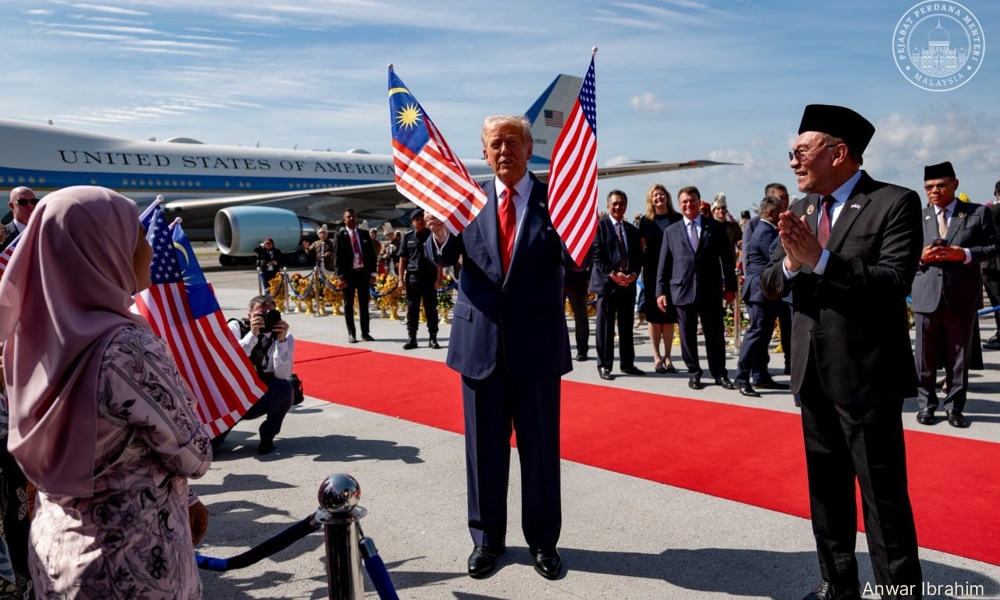Copyright malaysiakini

LETTER | Malaysia has just signed a trade agreement with the United States that strips away our regulatory autonomy, subordinates our foreign policy to Washington’s interests, constrains our ability to raise revenue, and commits us to spending a staggering US$220 billion over the next decade.This is not a reciprocal trade agreement. It is a capitulation dressed up as commerce.The Consumers’ Association of Penang (CAP) and Sahabat Alam Malaysia (SAM) strongly call on the Malaysian government to immediately reject this agreement and conduct a full and transparent review followed by open discussion in Parliament.Allowing Washington to dictate our foreign policyMalaysia has agreed to align its economic policies with those of the US - even on matters that have nothing to do with bilateral trade.The agreement requires Malaysia to:Mirror US trade restrictions on any third country if Washington claims it affects American “national and economic security”;Adopt US export controls on technologies and goods based on US security interests, not ours;Screen foreign investments into Malaysia for US national security risks; Consult with the US before signing digital trade deals with other countries.These provisions are extraordinary. They essentially give the US veto power over Malaysia's independent foreign policy. We are being asked to treat American interests as our own.Malaysia must retain the freedom to make its own strategic choices. This agreement strips us of that freedom.Surrendering our standards to the USUnder this agreement, Malaysia must accept US regulations and approvals as if they were our own - without independent assessment.The deal requires Malaysia to:Accept US Food and Drug Administration approval of drugs and medical devices as sufficient for our market;Recognise American food and agricultural standards as meeting our safety requirements;Accept US meat, dairy, and poultry products without independent inspection;Adopt US tolerance levels for pesticide residues, even when Malaysia has not yet set its own standards on certain products.This is dangerous. US regulatory standards are not always more stringent than ours. In some cases, they are weaker. By ceding our right to set independent safety standards, we are gambling with Malaysian public health to satisfy American exporters.This is our sovereign right, and we should not surrender it. We are ultimately responsible for our own physical well-being.Crippling our ability to raise revenueThe agreement blocks Malaysia from collecting taxes and tariffs on US goods and services in ways it never agreed to before.Malaysia is forbidden from:Imposing digital service taxes on US tech giants, even when they generate massive profits in our country;Requiring US social media and cloud companies to invest in local digital content and innovation (a six percent revenue contribution requirement has been scrapped);Permanently ban customs duties on digital products and electronic transmissions;Using border adjustment taxes to level the playing field between foreign and domestic producers.For a developing economy trying to build local capacity in technology and digital services, this is a body blow.US companies will operate in Malaysia with sweeping tax exemptions. We are losing crucial tools to fund development and build our own digital economy.Financial catastrophe in the makingBut the costs go far beyond lost revenue. Malaysia commits to purchase US$150 billion worth of American goods over five years - semiconductors, data centre equipment, aircraft, coal, and gas - plus an additional US$70 billion in investments in the US over 10 years.This is US$220 billion that could have been spent on Malaysian priorities: energy transition, infrastructure, healthcare, and local industries.In addition, buying US coal undermines our climate commitments under the Paris Agreement, where Malaysia is a party and the US is not.More seriously, this spending will plunge Malaysia into massive current account deficits. Our economists warn that Malaysia will face annual deficits of approximately US$23 billion, accumulating to US$115 billion over five years.We have seen this movie before. In the 1990s, Malaysia ran similar deficits - totalling US$33.5 billion from 1990 to 1997 - which contributed to the Asian Financial Crisis of 1997.That crisis devastated our economy and caused immense suffering. We cannot repeat that mistake.Even South Korea, with an economy quadruple the size of Malaysia’s, far deeper foreign reserves, and a whopping current account surplus that dwarfs Malaysia’s US$7 billion, is afraid that US demands of hundreds of billions from South Korea could destabilise its currency and economy. Threat of punishmentThe agreement includes a threat: if Malaysia enters into any economic arrangement that “jeopardises essential interests of the United States,” the agreement can be terminated, and Malaysia will face devastating tariffs of up to 24 percent (branded as “Liberation Day” rates).This is extortion, not negotiation. Malaysia is being told: comply or face economic punishment.What do we get in return?The government has not clearly explained what Malaysia receives from this agreement. The US market access promised in this deal is modest compared to what Malaysia is giving up.Meanwhile, US exports will flood our market at reduced tariffs, damaging local producers.US companies will enjoy tax exemptions on digital services. US investors will face fewer regulations. US regulators will have approval power over Malaysian standards. US interests will determine Malaysian foreign policy.And Malaysia will spend US$220 billion and risk its economic stability in return. This is not reciprocal. This is not fair.What must happen nowWe call for the following: 1. The federal government should not take any step to ratify the agreement while a full review is conducted on the implications of the provisions, in full consultation with all ministries, government agencies, economic, and social sectors;2. Parliament to conduct a comprehensive parliamentary review of the agreement, with public hearings where civil society organisations, domestic businesses, workers, and economists can testify and the findings be presented to the cabinet.3. The government to not surrender our right to set our own standards, pursue our own foreign policy, and manage our own economy.The US is a trading partner, but trade agreements must be reciprocal, fair, and respectful of Malaysian sovereignty. This agreement is none of those things.We demand that the government secure our independence, our prosperity and our future.The views expressed here are those of the author/contributor and do not necessarily represent the views of Malaysiakini.



